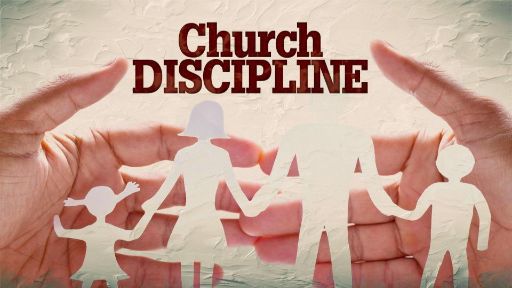-
Giving Thanks For Everything (Ephesians 5:20)
Contributed by David Smith on Nov 28, 2017 (message contributor)
Summary: A sermon by Angela Smith ...
"Sing and make music in your heart to the Lord, always giving thanks to God the Father for everything, in the name of our Lord Jesus Christ" (Ephesians 5: 20)
One of the first life skills I learnt from my parents was to say thank you. I’m sure this was the case for most us.
It is an important life skill that no parent can resist reinforcing with their kids. We start practicing it early and saying it for them every time we hand them something, because we discover in our kids that thankfulness is not something innate. As parents we’re highly embarrassed when our kids fail us by not using it outside the home. Imogen is a great one for responding with "Yuck I don’t eat that" at someone else’s house immediately after she has been lovingly served a plate of something she doesn’t like.
We reinforce thankfulness until the child mimics it, or at least says the word ’thank you’ at the right time. Eventually, the child picks up that the only way to get that thing you are holding in front of them is to say that word you keep repeating - ’thank you’. The child hasn’t a clue why, but repeats it anyway.
Francous de La Rochefoucould, a 17th century classical author, puts it this way: "Gratitude is merely the secret hope of further favours." It’s a little pessimistic, but let’s face it, that’s where we start.
I received a book from my mother when I turned one, entitled "A pocketful of Proverbs" - a useful little book full of helpful sayings that help a child get along in life, like "a stitch in time, saves nine" and this one on thankfulness;
"Hearts, like doors, will open with ease
To very, very little keys.
And don’t forget that two of these
Are "I thank you" and "if you please"
It’s an important word ’Thank You’. It’s a skill that helps us get along better in life. Everybody loves a grateful person, everybody loves being thanked.
"Nothing is more honourable than a thankful heart", said Seneca (Roman Philosopher - mid 1st century AD).
As adults we take on a deeper understanding of thankfulness. It moves from a way to get somewhere to a way of thinking. It’s the "attitude of gratitude" if you like, that we need to adopt to develop a positive mindset to help you through life.
We have become aware in the last decade of the positive physiological benefits of a positive mind. It leads to reduced stress, improved health and brings us closer to that ultimate goal of achieving inner peace and happiness.
The adoption of thankfulness by pop psychology is evident in the countless websites dedicated to ’thankfulness’. One of these sites is called "Ladybug’s Thursday Thankfullness" where someone lists 10 things she is thankfull for. Other people can add their thankful thoughts to a forum for all other like minded people to read and be thankful for. Eg. That I can see, that I have a lovely home, that I drink clean water, that I have two legs and arms.
It’s all about how you look at things, counting your blessings and altering your attitudes from the positive to the negative, seeing the glass half full. This is something I’m constantly trying to achieve with Imogen. The other week after I picked her up from school, she burst out with "Why don’t I get to go to aftercare" We spent the next 15min discussing how it was a good thing that I was at home for her after school. Needless to say, aftercare still looked better and she is booked in. But this changes our outlook and better equips us to deal with life.
"He enjoys much, who is thankful for little, a grateful mind is both a great and happy mind" (Anon)
Thank you is an important word, thankfulness an important concept. We learn that and accept that.
Thankfullness is important in the Bible too. In fact it is the conclusion of the reading today from St Paul to the Ephesians.
"Sing and make music in your heart to the Lord, always giving thanks to God the Father for everything, in the name of our Lord Jesus Christ"
Elsewhere in the bible we are encouraged and instructed as Christians to be thankful to God.
1 Thessalonians "…give thanks in all circumstances, for this is God’s will for you in Christ Jesus". This is what God wants of us.
We instructed to live with grateful hearts: "And whatever you do, whether in word or deed, do it all in the name of the Lord Jesus, giving thanks to God the Father through him" (Colossians 3:17). We are encouraged to count our blessings, as the old hymn told us to. We are to give thanks to God, the giver of all blessings.

 Sermon Central
Sermon Central



